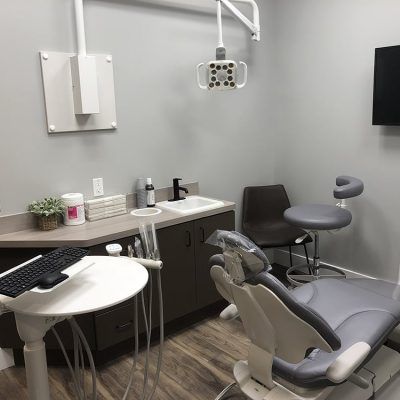
When a tooth is cracked or chipped, not only does the appearance change, but the functionality of the tooth has been compromised and is at risk of infection if the damage is bad enough. Damaged teeth due to impact is a common scenario in the dental world and it is a problem that is relatively easily fixed depending on the extent of the damage at hand. At River Run Family Dentistry we want to make sure that each patient gets dental care they need.
Fixing a broken tooth that has sustained mild injury is repaired in a way that is a bit similar to filling a cavity. The process used is called bonding and is an effective procedure for teeth that need to be repaired, but do not necessarily need a crown.
How Does Bonding Work?
Bonding is a procedure that involves resin material that gets bonded to the tooth and shaped to mimic the missing portion. This material is almost putty-like and gets hardened when placed on the tooth via either a laser or blue light.
Is This Material Durable?
Resin is reasonably durable, but keep in mind that it is not quite as strong as natural teeth. However, it is more than adequate in day to day life. It is advised that you try not to put too much pressure on the bonded tooth when eating. A bonded tooth that has been taken care of can last a patient up to 7 years, depending on the location and how much bonding material was used. However, if the bonded tooth is in a “high traffic” area such as the front teeth, then the material may need to be re-applied.
Veneers vs Bonding
If the damage to a tooth only affects cosmetic appearances and you do not want to have to worry about getting a tooth re-bonded, veneers are an option to consider. They are more expensive than bonding, but they can provide a cosmetic boost to your top row of teeth rather than simply repairing 1-2 teeth at a time. In addition to this, veneers that are well taken care of can last up to 15 years.
Bonding is chosen as a way to restore cosmetics more often as it is lower in price for the procedure and you don’t have to worry about something that you need to take out and clean every day.
Does Insurance Cover Bonding?
Procedures that are purely for cosmetic reasons only such as whitening will not be covered by insurance in the vast majority of cases. However, bonding can be done for structural reasons or cosmetic reasons which can make the situation unclear at times. If we feel that the damaged tooth is a danger to you or your mouth, then insurance should cover part of the cost. This will be up to your provider’s discretion on how much will be covered.
We Want to Hear from You
Whether it is for cosmetic or dental health reasons, if you would like to have a chipped or cracked tooth repaired, we want to help! At River Run Family Dentistry helping patients have the best smile they can in an environment they feel welcome is our top priority. You can call 830-387-3040 to ask any questions or schedule an appointment.
